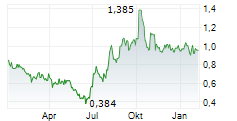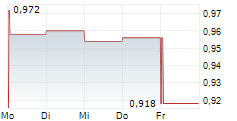The granted patent is closely linked to customers' need to automate many different flows within material handling. The patent covers a non-load-bearing AMR that can autonomously connect, via a standardized interface, to various types of functional load carriers designed to solve different material handling applications. Some examples of this include load carriers that can tow a train of carts, lift and move pallets, or carriers with rollers that can pick up material from conveyor systems.
The solution can be compared to the ecosystems established in the robotic arm industry, where a standardized robot arm, through a standardized interface, can be equipped with various end-of-arm tools to perform different tasks such as assembly, welding, or picking.
In the same way, the Navigator AMR, which is a standardized robot, can be connected to an ecosystem of load carriers equipped with lifts, rollers, or other hardware to handle different types of materials. Additionally, load carriers can be designed for various sizes and weights of material, offering customers a high degree of flexibility while using a standardized AMR.
This new patent complements previously granted patents, which protect the technology enabling a modular AMR with a standardized "plug and play" connection.
Equivalent patent applications are also under review in the USA, Canada, South Korea, Japan, Mexico, China, and India. As previously announced, patents related to the FlexQube Navigator AMR have already been granted in the USA, Canada, Europe, Turkey, and China.
Per Augustsson, AMR business manager, comments: This is a very important patent for FlexQube, as it protects our core idea with the Navigator AMR concept: to create an ecosystem consisting of a standardized AMR and a wide range of motorized load carriers for different types of material handling applications. Instead of customers having to invest in dedicated robots for different applications, FlexQube offers a unique modular ecosystem where a high level of standardization is combined with high flexibility for the customer.
For our customers, this means they don't need to invest in dedicated robots for each application in a factory or warehouse - something often associated with limitations in flexibility and capacity. Similar to the already established ecosystems in the robotic arm industry, the FlexQube Navigator AMR ecosystem will provide comparable benefits for our customers in material handling.
- A standardized robot can perform many different tasks by autonomously switching load carriers according to current transport needs
- New load carriers can be designed for emerging needs and added to the ecosystem for fast adaptation to customer requirements
- "Plug and play" connection with mechanical, electronic, and software interfaces enables quick and easy implementation of new load carriers
Developing and establishing an ecosystem with this high level of standardization takes more time and investment compared to building an application-specific robot, but we are now seeing how quickly and effectively we can develop different solutions for our customers. For certain customers, we have designed up to 10 different load carriers to meet their full range of needs, and we see growing customer recognition of the benefits of FlexQube's AMR system - especially when there is a large variation in materials to be moved.
For more information, contact:
CEO, Anders Fogelberg
anders.fogelberg@flexqube.com
+46 702 86 06 74
About FlexQube
FlexQube is a technology company headquartered in Gothenburg, Sweden with subsidiaries in USA, Mexico, Germany and England. FlexQube offers solutions for cart-based material handling using a patented modular concept. FlexQube develops and designs customized solutions for both robotic and mechanical cart logistics. Through the own developed and unique automation concept FlexQube can offer robust and self-driving robotic carts. FlexQube has more than 1200 customers in 40 countries with primary markets being North America and Europe.
FlexQube's customers can be found within the manufacturing industry, distribution- and warehousing. We represent some of the most successful companies in the world with a significant share being represented on the Fortune 500 list. These companies exist within automotive, electric vehicle manufacturing, online retail, heavy-duty trucks, industrial automation and retail logistics.
Image Attachments
LC Variants


